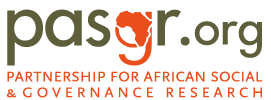Contact Info
- 6th Floor, I & M Building 2nd Ngong Avenue, Upper Hill
- +254 (0)20 2985000; +254 (0)729 111031 / +254 (0)731 000065
- info@pasgr.org
- Office Hrs: Today 9.00am to 6.00pm
Two Kenya-based international higher education think tanks have joined forces to advance equitable access to quality higher education in the pandemic environment.
The African Network for Internationalization of Education and the Partnership for African Social and Governance Research (PASGR) have partnered to form the Utafiti Sera House (Swahili for Research Policy House).
The research community that has been created will work to generate evidence that can inform higher education policies and will bring together academics, university leaders, postgraduate students, policy-makers, the private sector, industry, NGOs and international development partners.
It will explore the impact of the COVID-19 pandemic on Kenyan universities and the coping strategies adopted by the universities, and explore links between existing policies and existing evidence, according to a concept paper guiding the initiative.
“Despite the serious challenges posed by the COVID-19 pandemic, most of the universities have demonstrated their resilience by developing adaptive strategies and responses to this situation. A major shift has been the deployment of ICT and digitalisation as alternative ways for facilitating teaching, learning, research and supervision of students,” it notes.
Gender, geography also in focus
The COVID-19 context raised expectations from universities, including enhancing their capacity to offer online programmes, accommodating the diversity of programmes, providing requisite infrastructure, and expanding access to online resources and to broadband itself, said Dr Jackline Nyerere, the coordinator, Internationalisation at Home at the African Network for Internationalisation of Education.
The policy house will explore resourcing for access, equity and quality education during and post COVID-19, as well as opportunities for public-private partnerships in strengthening access. In addition, the impact of the pandemic on postgraduate training and research, and the future of “emerging academics” will be addressed, Nyerere, a lecturer at Kenyatta University, added.
Also to be studied are the financial, geographical, gender, physical, social and organisational factors determining access during the pandemic, she added.
During the pandemic, universities had, in some cases, noted that women had dropped out of teaching practice, for example, while the majority of their male counterparts had successfully completed the exercise and graduated without delay, she said at the launch of the Utafiti Sera House workshop early in July.
On the other hand, it was evident that some geographical areas suffered marginalisation in terms of poor internet broadband infrastructure, while income disparities were also sharply evident when rural and urban areas were contrasted.
“The above will be addressed through a sequence of activities, including synthesising emerging evidence, conducting supplementary small-scale studies, and examining policies in response to the wide-scale disruption of the pandemic on the higher education sector,” the academic disclosed.
Policy development
The research forum will strive to generate evidence that will support policy development while tackling the question of higher education access during the present and future pandemics, said Pauline Ngimwa, the PASGR programmes officer.
As part of the project, funded by the Carnegie Corporation of New York, teams will “co-create” knowledge and take it to the next level of action, she added.
The policy initiative is an innovative approach to evidence-informed policymaking that will strive to bridge the gap between evidence and policy while using a multi-actor approach, said Steve Ouma Akoth, anthropologist and Kenyatta University don.
It will seek to provoke national debate, new programme design in universities and changes in formulation and implementation of the new policy.
While there has been a low uptake of research findings in policies in the past, the Utafiti Sera House community hoped that the theme of strengthening equitable access will motivate all actors to realise the urgency and importance of policy changes, he said.
Anthony Mveyange, the Executive Director of PASGR, said the COVID-19 pandemic had notably exacerbated poverty in many African settings and worsened problems that existed before the pandemic in most spheres of higher education, forcing a rushed digital transformation.
The findings made in the Kenyan initiative are likely to provide a guide for what prevailed in other countries in the Eastern Africa region. The lessons learned will also be a springboard with the potential to be scalable throughout the region, added the Executive Director.
This has been reposted from https://www.universityworldnews.com/post.php?story=20210720191525117
A4EA AAU advanced research design African universities agriculture Applied Quantitative Methods APSP ARD CABE call for applications cash transfers COVID-19 employment energy EOI Featured higher education IDS INCLUDE Job opportunity LEAP Africa MMRC MRPP opportunities opportunity PAMOJA TRUST partnerships PASGR PDT pedagogy PedaL press release professional development and training professional training public policy Research research methods scholarships social protection Social sciences University of Ibadan University of Pretoria utafiti sera vacancy Youth employment

6th Floor, I & M Building
2nd Ngong Avenue, Upper Hill
P.O. Box 76418-00508
Nairobi, Kenya
Email: info@pasgr.org
Tel: +254 (0)20 2985000;
+254 (0)729 111031 / +254 (0)731 000065
Legal counsel provided by Hurwit & Associates and Muthoga Gaturu & Co. Advocates
